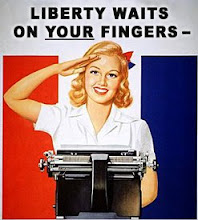A recent blog was posted by TIME's Michael Scherer that seems to sum up how the news is changing. While Scherer's focus is on political news, I think it's core ideas are valuable to all journalists, especially those of us still in the depths of our studies. I highly suggest reading the full article, but here's just a blurb:
"The Internet has changed the incentives for news producers. Once upon a time, the incentive of a print reporter at a major news organization was to create a comprehensive, incisive account of an event like Cheney's provocative interview on CNN. (Open the New York Times or the Washington Post tomorrow, and you will still be able to read versions of this story.) That account would then be packaged into a container (a newspaper, a magazine, a 30-minute network news broadcast) and sold to the consumer. In the Internet-age, by contrast, what matters is not the container, but the news nugget, the blurb, the linkable atom of information. That nugget is not packaged (since the newspapers, magazine, broadcast television structure do not really apply online), but rather sent out into the ether, seeking out links, search engine ranking and as many hits as possible. A click is a click, after all, whether it's to a paragraph-length blog post or a 2,000 word magazine piece. News, in other words, is increasingly no longer consumed in the context of a full article, or even a full accounting of an event, but rather as Twitter-sized feeds, of the sort provided by the Huffington Post, The Page, and The Drudge Report. Each quote gets its own headline. Context and analysis are minimized for space. The reader, choosing her own adventure as she clicks, creates her own narrative of the world, one that is largely dependent on the aggregators she employs."
Tuesday, March 31, 2009
Subscribe to:
Post Comments (Atom)







No comments:
Post a Comment